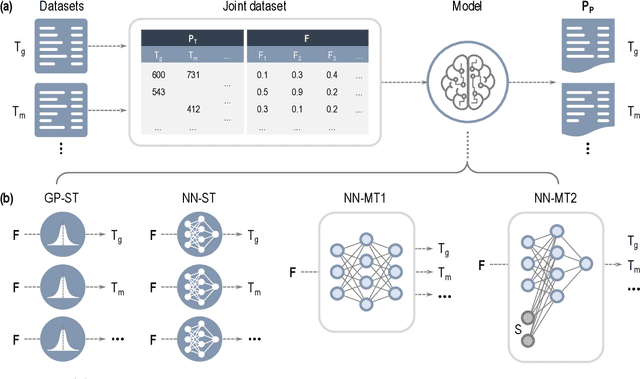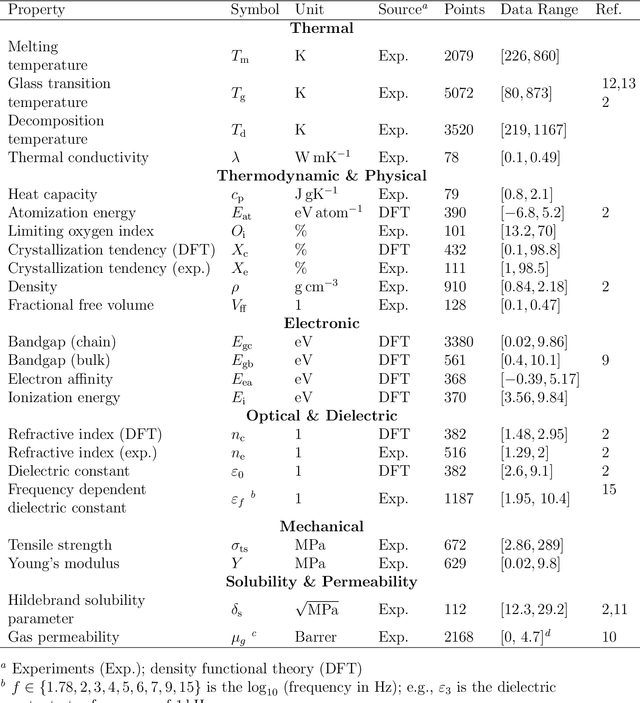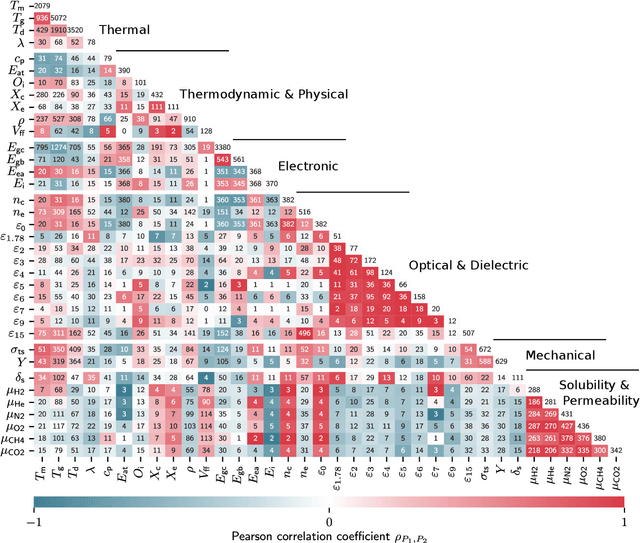Polymer Informatics with Multi-Task Learning
Paper and Code
Oct 28, 2020



Modern data-driven tools are transforming application-specific polymer development cycles. Surrogate models that can be trained to predict the properties of new polymers are becoming commonplace. Nevertheless, these models do not utilize the full breadth of the knowledge available in datasets, which are oftentimes sparse; inherent correlations between different property datasets are disregarded. Here, we demonstrate the potency of multi-task learning approaches that exploit such inherent correlations effectively, particularly when some property dataset sizes are small. Data pertaining to 36 different properties of over $13, 000$ polymers (corresponding to over $23,000$ data points) are coalesced and supplied to deep-learning multi-task architectures. Compared to conventional single-task learning models (that are trained on individual property datasets independently), the multi-task approach is accurate, efficient, scalable, and amenable to transfer learning as more data on the same or different properties become available. Moreover, these models are interpretable. Chemical rules, that explain how certain features control trends in specific property values, emerge from the present work, paving the way for the rational design of application specific polymers meeting desired property or performance objectives.
 Add to Chrome
Add to Chrome Add to Firefox
Add to Firefox Add to Edge
Add to Edge